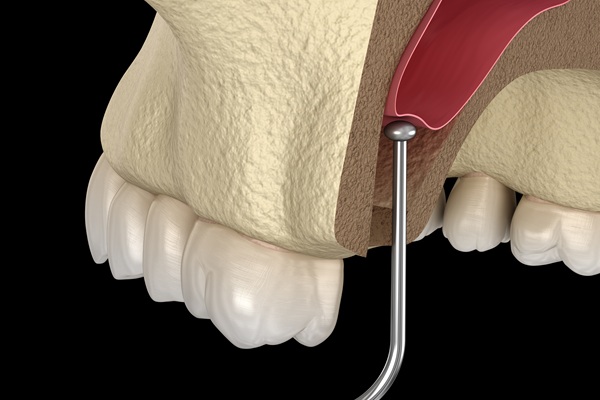Common Oral Pathologies and How to Treat Them

An oral pathology must receive immediate treatment. This can prevent more complications later on. Your oral surgeon can help correct any dental problem. Here are the details about each common oral pathology and its corresponding treatment.
Gum disease
This oral pathology results from a bacterial infection because of plaque buildup. Symptoms of this condition include gum bleeding and swelling. There could also be temperature sensitivity and bad breath. Poor oral care and misaligned teeth can cause gum disease. Pregnancy, diabetes, and tobacco consumption can also contribute to the onset of this dental problem.
Regular dental checkups can prevent the onset of this dental problem. Treating this oral pathology will need more frequent dental visits and dental cleanings. Aligning teeth and improving dental care habits can improve this condition. Deep cleaning treatments can also keep it from worsening.
Dental decay
Many people suffer from this oral pathology. Tooth decay starts when plaque builds up on dental surfaces. Bacteria produce acids that eat away the enamel layer. This results in cavities. Brushing, flossing, and using fluoride mouthwash can help keep plaque from sticking too long.
The patient must see a dentist for treatment. There will be a thorough inspection of the cavities. The patient may need a root canal treatment, crowns, or large fillings. If the damage due to decay is deep and significant, the patient will receive a referral to see an oral surgeon. A severe dental decay that reaches the jawbone will need a dental extraction.
Periodontitis
This oral pathology is severe gum disease. This is when the gum pockets develop infections. Bacteria can destroy the supportive tissue and bone that support the teeth. This disease can also lead to the following symptoms:
- Persistent bad breath
- Bad taste in the mouth
- Gum recession
- Bite changes
- Loose teeth
Periodontitis triggers an inflammatory response. This happens throughout the body. The dentist can prescribe antibiotics. More frequent deep cleaning treatments may reduce the symptoms.
Tooth sensitivity
Enamel erosion and tooth decay cause this oral pathology. They expose the nerve-rich dentin layer. That is why the teeth become sensitive to cold and hot foods or drinks. These substances come in contact with dentin and cause severe pain. Other causes of tooth sensitivity are:
- Gum recession
- Worn-down fillings or crowns
- Dental root infection
- Broken tooth
- Gum disease
The dentist can examine the tooth first. This will determine the root cause of the sensitivity. The dentist will perform treatments that can end the pain, such as fillings. More frequent dental cleanings can reduce the symptoms as well.
Teeth grinding
This oral pathology is also called bruxism. Teeth grinding often happens while the individual is asleep. In some cases, this condition happens while the person is awake. The constant grinding can cause dental damage. It can also lead to jaw pain, earaches, and headaches.
The dentist can make a custom-made mouthguard. Wearing it at night can protect the teeth from damage. This can be a little uncomfortable, but it can help minimize bruxism symptoms. It can also help correct bite problems.
Treating an oral pathology can improve your dental and general health
Keeping your teeth and gums healthy can ensure your general well-being. Your dentist can help detect any oral pathology. Simple ones can receive treatments right away. More complicated ones will need the help of an oral surgeon.
Request an appointment here: https://brighton.drjstearns.com or call Platte Valley Oral Surgery at (303) 997-0223 for an appointment in our Brighton office.
Check out what others are saying about our services on Yelp: Oral Pathology in Brighton, CO.
Recent Posts
A sinus lift procedure goes by many other names, including sinus elevation, sinus augmentation, and sinus graft. It can be an important step in the process of having a dental implant placed in the upper jaw to replace a missing tooth. The procedure involves raising the floor of one of the maxillary sinuses and filling…
Facial trauma treatment differs based on the severity and location of the damage. Continue reading to learn how an oral surgeon addresses facial trauma. It can cause other medical issues, so it is important to seek treatment promptly. An oral surgeon is a face trauma specialist who is trained in maxillofacial surgery and treatment. They…
Oral bone grafting procedures can help restore mouth functionality, health, and appearance. These surgical procedures vary in type and extent. Continue reading to learn more about dental bone grafts, the surgical grafting process, and why someone might need oral bone grafts.Surgeons perform bone grafts throughout the body. Oral bone grafting occurs in the mouth, usually…
All-on-4 implants offer stable, full-arch solutions when teeth are failing or missing. This approach replaces an entire row of teeth with a denture or fixed bridge supported by four dental implants. It restores chewing strength, clear speech, and everyday confidence while keeping care simple. Here is when this option rises to the top and what…


